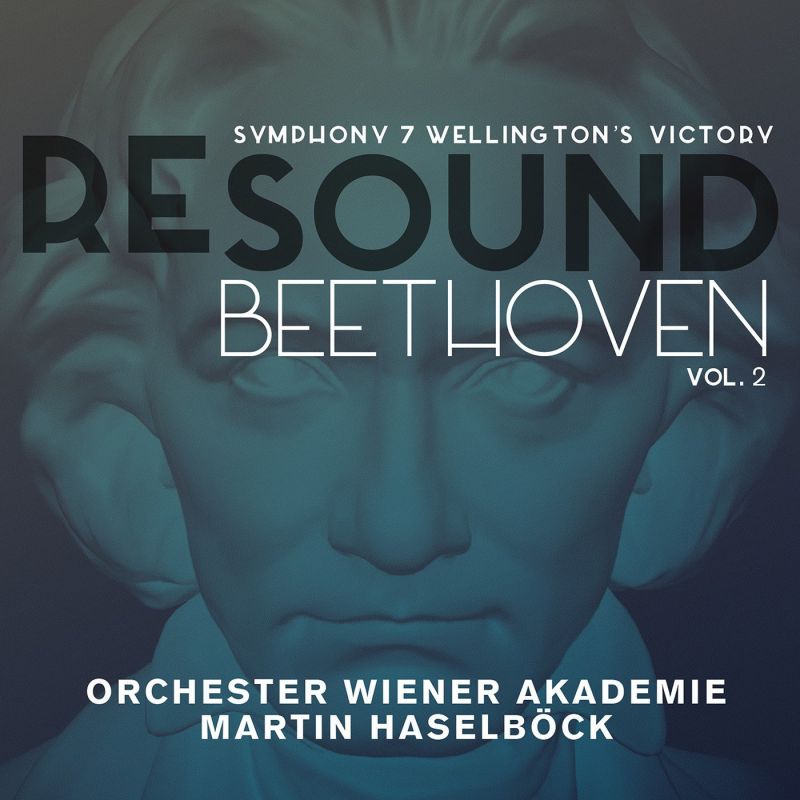BEETHOVEN Symphony No 7. Wellington's Victory
View record and artist detailsRecord and Artist Details
Composer or Director: Ludwig van Beethoven, Jan Ladislav Dussek, Ignace Joseph Pleyel
Genre:
Orchestral
Label: Alpha
Magazine Review Date: 03/2016
Media Format: CD or Download
Media Runtime: 63
Mastering:
DDD
Catalogue Number: ALPHA473

Tracks:
| Composition | Artist Credit |
|---|---|
| Symphony No. 7 |
Ludwig van Beethoven, Composer
Ludwig van Beethoven, Composer Martin Haselböck, Conductor Vienna Academy Orchestra |
| Jubel March |
Ignace Joseph Pleyel, Composer
Ignace Joseph Pleyel, Composer Martin Haselböck, Conductor Vienna Academy Orchestra |
| The Brunswick March |
Jan Ladislav Dussek, Composer
Jan Ladislav Dussek, Composer Martin Haselböck, Conductor Vienna Academy Orchestra |
| Wellingtons Sieg, '(Die) Schlacht bei Vittoria' |
Ludwig van Beethoven, Composer
Ludwig van Beethoven, Composer Martin Haselböck, Conductor Vienna Academy Orchestra |
Author: Richard Osborne
The Redoutensaal, the grand ballroom of Vienna’s Hofburg Palace, had been hired for the occasion to accommodate an unusually large orchestra and to make use of the adjacent corridors up which the opposing British and French forces could march. It was this spatial dimension of The Battle of Vitoria – or Wellington’s Victory as the piece came to be known after Wellesley’s elevation to a dukedom in 1814 – which so commended it to the stereophonic age. You probably recall Antál Dorati’s 1961 Mercury recording coupled with that famous bells-and-cannons account of Tchaikovsky’s 1812 Overture (11/61) or the rather spruce 1969 Berlin recording under Karajan (DG, 12/69).
These added pre-recorded gunfire. Martin Haselböck sticks with the augmented percussion section used at the first performance. This is absolutely right, though it rather underlines how musically threadbare the battle sequence is ahead of Beethoven’s victory fugue on ‘God save the King’. Haselböck takes the fugue rather slowly but that’s what happens when you put large orchestras into large halls. Beethoven probably did likewise back in 1813, assuming his hearing was up to it. I should add that the recording is first-rate.
Mälzel’s mechanical trumpet, a splendid-looking machine, makes a bright piping sound in the Pleyel and Dussek marches. As for the symphony, Haselböck draws from his period instrumentalists a performance that is as sonically satisfying as it is vital and well-proportioned. It also has a strong dance feel to it, as befits the ballroom ambience. The only thing that mystified me was a seeming lack of antiphonally divided violins, a point of some consequence in this symphony. A most absorbing disc, nonetheless.
Discover the world's largest classical music catalogue with Presto Music.

Gramophone Digital Club
- Digital Edition
- Digital Archive
- Reviews Database
- Full website access
From £8.75 / month
Subscribe
Gramophone Full Club
- Print Edition
- Digital Edition
- Digital Archive
- Reviews Database
- Full website access
From £11.00 / month
Subscribe
If you are a library, university or other organisation that would be interested in an institutional subscription to Gramophone please click here for further information.




